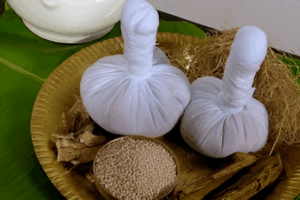Introduction: Embracing Ayurvedic Wisdom for Throat Relief
When your throat feels dry, scratchy, or painful, even speaking or swallowing can be uncomfortable. While modern medicine offers quick fixes, more and more people are turning to Ayurveda for Sore throats, seeking a natural and lasting approach. Rooted in centuries-old traditions, Ayurveda doesn’t just target symptoms—it works holistically to restore balance and strengthen your body’s defences.
As we explore this ancient science, you’ll discover how natural herbs, dietary shifts, and daily rituals can bring relief from throat discomfort while nurturing overall wellness.
Understanding a Sore Throat from an Ayurvedic Perspective
In Ayurveda, a sore throat is typically related to an imbalance in the Kapha and Vata doshas. Kapha governs the mucus and fluid balance in the body, and when aggravated, it can cause congestion and inflammation. On the other hand, an increase in Vata can lead to dryness and irritation in the throat.
According to Ayurveda for Sore Throat, the key is to restore this balance through warming, soothing, and lubricating herbs and practices. Unlike conventional medicine, which often focuses solely on symptom suppression, Ayurveda emphasizes healing from the root.
Top Ayurvedic Herbs That Work Wonders
To begin with, certain herbs are consistently recommended in Ayurveda for Sore Throat remedies for their soothing and anti-inflammatory properties. These herbs can be used in various forms such as teas, gargles, or lozenges.
Here are some powerful options:
-
Licorice Root (Yashtimadhu): Coats the throat and reduces inflammation.
-
Holy Basil (Tulsi): Boosts immunity while reducing throat pain and congestion.
-
Turmeric (Haldi): Known for its antibacterial and antiseptic qualities.
-
Ginger (Adrak): Warms the system, reduces phlegm, and soothes soreness.
-
Clove (Laung): Acts as a natural analgesic, offering quick relief from pain.
Incorporating these herbs into your daily routine—either by drinking them as teas or using them in warm gargles—can make a significant difference.
Effective Home Remedies with Ayurvedic Roots
Let’s now look at some time-tested, easy-to-follow remedies based on Ayurveda for Sore Throat that you can try right at home:
1. Turmeric and Salt Water Gargle
-
Add ½ teaspoon turmeric and ½ teaspoon salt to a glass of warm water.
-
Gargle twice a day for anti-inflammatory and antimicrobial benefits.
2. Ginger-Tulsi Herbal Tea
-
Boil a few Tulsi leaves and crushed ginger in water.
-
Add a teaspoon of honey (optional) and sip it warm.
-
This boosts immunity and soothes the throat simultaneously.
3. Licorice Root Lozenges or Tea
-
Available in most herbal stores.
-
Helps coat the throat and reduce persistent irritation.
4. Steam Inhalation with Eucalyptus or Clove Oil
-
Add a few drops of oil to hot water and inhale the steam.
-
Clears congestion and opens airways, making breathing easier.
5. Warm Milk with Turmeric at Night
-
A glass of warm milk with a pinch of turmeric before bed promotes healing and restful sleep.
These remedies align beautifully with the principles of Ayurveda for Sore Throat, providing comfort and healing without harsh chemicals.
Dietary Tips to Prevent and Manage Throat Irritation
Your diet plays a key role in both prevention and recovery. Ayurveda encourages foods that are warm, soft, and easy to digest during times of throat irritation.
Here’s what you should include:
-
Warm soups and broths: Light on the throat and nourishing.
-
Cooked vegetables, especially carrots, pumpkin, and squash.
-
Herbal teas: Such as chamomile, tulsi, or ginger.
Avoid the following to speed up recovery:
-
Cold or iced drinks
-
Fried and oily foods
-
Excess sugar or sweets
-
Dairy products that increase mucus
Incorporating these dietary practices in line with Ayurveda for Sore Throat can significantly reduce the frequency and severity of throat issues.
Lifestyle Adjustments to Support Healing
In addition to herbal treatments and diet, lifestyle habits also play a major role. Ayurveda emphasizes a holistic approach to health, meaning your daily habits can either aggravate or soothe your symptoms.
Consider the following suggestions:
-
Stay Hydrated: Sip warm water throughout the day to keep the throat moist.
-
Rest Your Voice: Avoid talking unnecessarily when your throat feels strained.
-
Practice Oil Pulling: Swishing sesame or coconut oil in the mouth for 10–15 minutes can reduce bacterial load.
-
Use a Humidifier: Especially in dry climates or during winter, moisture in the air can prevent irritation.
These habits complement the herbal and dietary remedies of Ayurveda for Sore Throat, making your healing journey more effective and holistic.
When to See a Practitioner
While most sore throats can be treated at home, persistent symptoms may require professional attention. If you experience a high fever, difficulty swallowing, or symptoms that last longer than a week, consult a healthcare provider.
For those seeking holistic guidance, an Ayurvedic clinic can provide personalized treatment based on your dosha type and health history. From lifestyle plans to customized herbal blends, Ayurvedic practitioners offer in-depth healing strategies that go beyond just symptom relief.
Conclusion: Trust Nature and Tradition
As you can see, turning to Ayurveda for Sore Throat isn’t just about herbs—it’s a complete lifestyle approach. From dietary shifts and herbal teas to time-tested home remedies and calming rituals, Ayurveda offers gentle yet effective ways to nurture your throat and overall health.
The power of natural Ayurvedic remedies lies in their ability to heal without harming. By integrating these practices into your daily life, you not only find relief but also build long-term resilience.
If you’re ready to take a natural, sustainable approach to your wellness, visiting an Ayurvedic clinic may be the next best step toward total healing. Trust nature, trust tradition, and embrace the path of holistic well-being.









